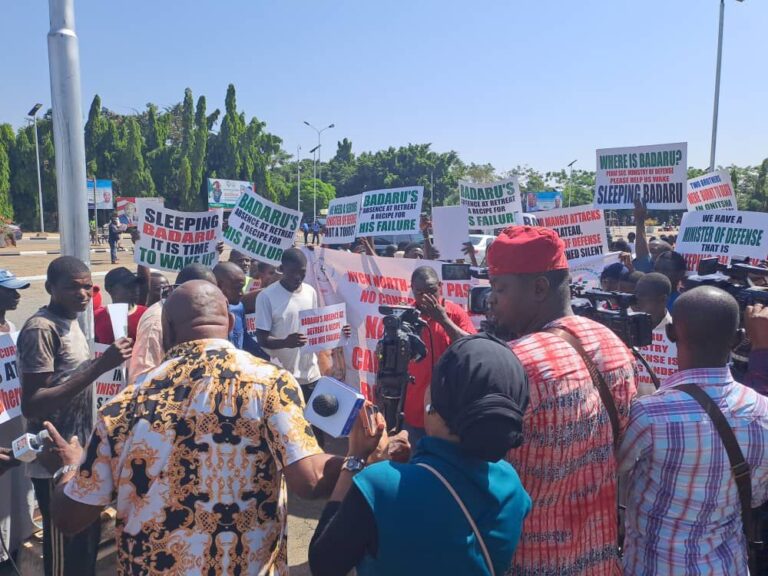In a season where activism often blurs into agitation, Nigeria’s youth leaders are calling for a crucial pause — and a rethink.
This week, the Kaduna State Chapter of the National Youth Council of Nigeria (NYCN) made a bold declaration: not all who speak the language of activism have the nation’s good at heart.
The Council’s caution followed reports of a planned protest tagged #FreeNnamdiKanuNow, allegedly championed by activist Omoyele Sowore. The movement, coming on the heels of a U.S. Embassy security advisory, has triggered fresh national debate on the boundaries between civil expression and orchestrated unrest.
But in a time when social media easily amplifies outrage and misinformation, the NYCN’s message was clear — patriotism must guide protest, not provocation.
Beyond the Hashtags: When Activism Turns into a Business Model
Speaking through its Chairman, Comrade Umar Abubakar, the Council described a growing wave of “conflict entrepreneurship” — a phenomenon where some individuals allegedly profit politically or financially from unrest.
“We must resist those who thrive on chaos and disunity,” Abubakar said.
“Nigerian youths should not become pawns in the hands of those who exploit our democratic freedoms for personal gain.”
This, he noted, is not a rejection of activism but a call for responsible citizenship. Peaceful protest, a constitutional right, loses its moral force when driven by manipulation, misinformation, or self-promotion.
The Kaduna NYCN warned that such exploitative activism deepens national division, distracts from pressing economic reforms, and risks turning genuine social movements into platforms for personal relevance.
A Call to Redefine Leadership Among the Youth
“Leadership is not in noise-making or in trending hashtags,” the statement continued. “Leadership is in responsibility, integrity, and vision.”
The Council’s message carries a subtle but powerful challenge to young Nigerians — to reclaim activism from those who weaponize it.
In a society often fatigued by broken promises and rising discontent, it’s easy to confuse disruption with progress. Yet, the Kaduna Youth Council insists that nation-building demands balance — conviction with conscience, activism with accountability.
Building Peace Through Inclusion and Empowerment
The NYCN commended the ongoing youth inclusion efforts under President Bola Ahmed Tinubu, alongside the initiatives of Minister of Youth Development and Kaduna State Governor Uba Sani, describing them as “the foundation for a new generation of responsible leadership.”
The group also praised the Kaduna State Commissioner for Youth Development for consistent engagement with grassroots organizations — a gesture they say strengthens trust, empowers communities, and channels youthful energy into productivity rather than protest.
Guardians of Tomorrow
Nigeria’s demographic reality is undeniable — with over 60 percent of its population under 30, the youth are not just the future; they are the present. Yet, the NYCN argues, that power must be guarded with wisdom.
“Our greatest strength can also be our greatest vulnerability if misused,” Abubakar warned.
“We must not allow temporary outrage to destroy permanent opportunities. True change begins when the youth choose creation over chaos.”
As the dust settles on this latest controversy, one truth stands firm: Nigeria’s destiny will be written by its young people — but whether they become builders or breakers of that destiny depends on the kind of activism they embrace.

